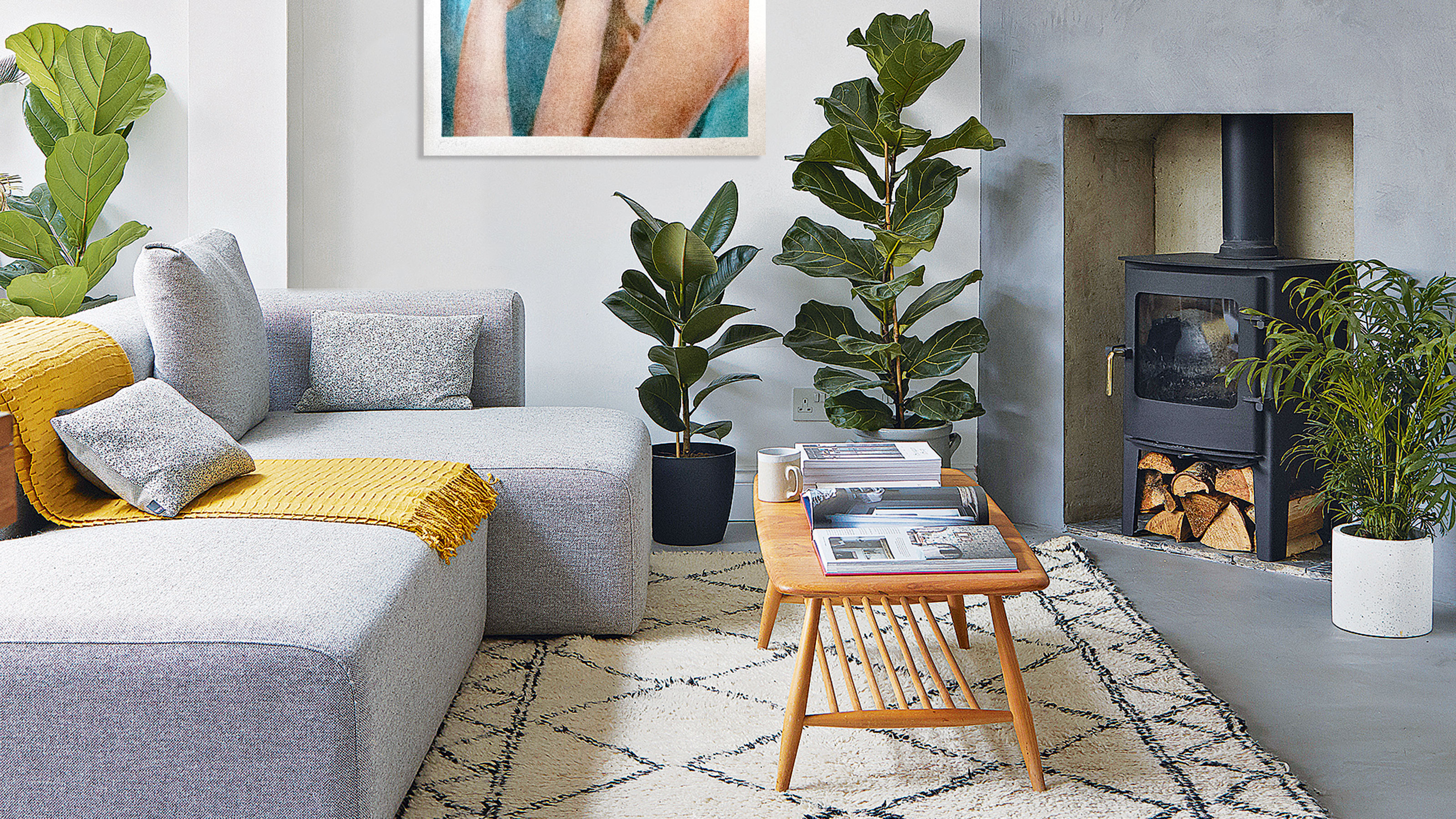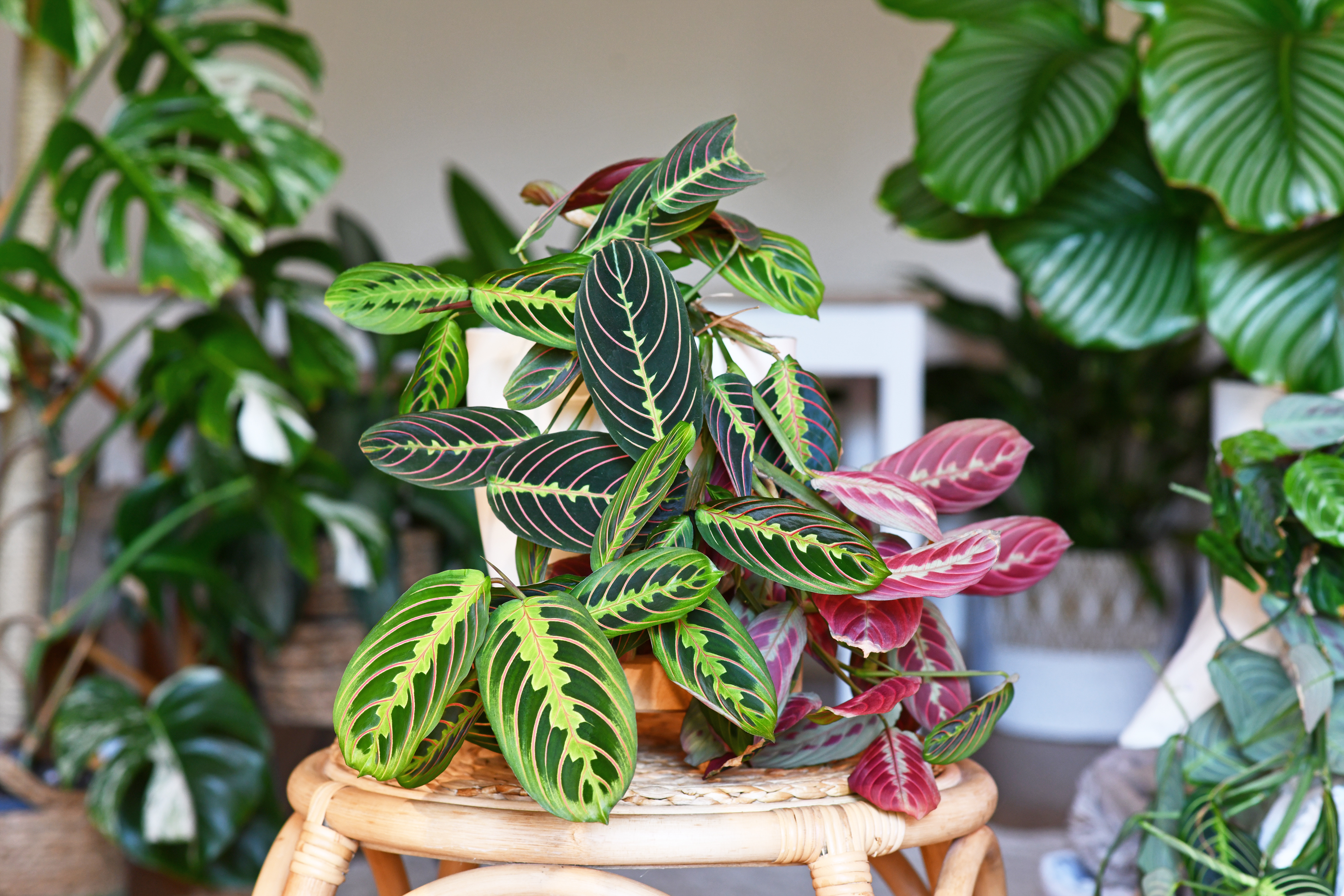
How are your indoor plants looking now that the heat has been turned up in your home? If they're not looking great, then it's time to discover the best winter watering schedule for houseplants and give them a thriving sense of life.
When the heaters in our homes kick in, our plants can suffer in the drier air. Combine this with the fact that many plants go into dormancy due to the lower light levels, and the result is that our indoor gardens can start to look a little lackluster. It's easy enough to maintain them, though. It just means watering houseplants in the winter will require a slightly different approach.
The advice isn't the same for all houseplants. Some species may struggle more than others, particularly those from humid climates. So, how can you tell when and how to water houseplants in the winter? We've asked horticultural experts to explain.
What is the best winter watering schedule for my houseplants?

With any indoor garden, whether large or small, it is best to check your plants, before automatically watering them. Some of your plants may require less water during the winter months, while others may require more. Either way, not all of your plants will require water on the same day, so continue to check them weekly.
"In general, houseplant watering should be reduced over the winter months, starting in mid to late November," says Samantha Adler, horticulturalist and founder of the Houseplant Concierge. "Some plants will go dormant and need almost no water throughout the winter. However, many houseplants don't ever truly go dormant because we regulate the temperature and light in our households."
Paris Lalicata, plant expert at The Sill explains "There isn’t a strict calendar schedule to follow since plants will take up water based on the amount of light they’re receiving, as well as the temperature and humidity levels in the space."
"Depending on the conditions, some plants may need to be watered less frequently during the winter months due to the decrease in daylight hours and cooler temperatures. On the other hand, some will require the same watering schedule as before, or may even need to be watered more frequently if conditions are hotter and drier due to heating units."
How should I water houseplants in the winter?

The method you use for watering your beautiful houseplants can remain the same during the winter. However, it can be adjusted, particularly if your plants are in a room that is used often and may frequently become hot, such as the living room.
"It’s best to allow your plants to dry out to the depth they need and then give them a thorough soaking to evenly and thoroughly saturate the soil in each watering," says Paris. "The one thing I usually recommend for the winter is to incorporate a humidifier into the space, especially if the air in the home becomes very dry due to the heaters. This will help to keep your plants moist, and may also reduce your frequency of waterings because it’ll help to prevent plants from overheating."
"Pay attention to your heat sources too," says Samantha. "Plants should not be on or near radiators where their water might get very hot after watering and damage the plant roots. If any of your plants are in the direct path of a heat source and seem to be struggling with dryness, move them away from it, instead of adding more water to the plants."
So, if you're wondering if you need a dehumidifier for your indoor plants, we say yes — especially if your home becomes too dry due to heat from radiators and fireplaces.
How often should I water houseplants in winter?

Wondering how often you should water houseplants — especially in the winter? Even if your houseplants generally require less water during this season, it's a good habit to continue to check them weekly or more. The best houseplants for beginners can usually survive some neglect. However, if you have been spending more time indoors with the heat on, such as over the holidays, your plants may dry out more quickly and need a drink.
"If you have moisture-loving plants like Ferns or Calatheas I would recommend checking their soil up to twice a week," says Paris. "Whereas other houseplants you should check weekly to every 10 days. Drought tolerant species you can check in every 10-14 days.
"Plants that are in smaller or even more porous containers will dry out faster so it’s always best to check on them more frequently than others, including any plants that are mounted to boards or in a kokedama," continues Paris.
Paris says the best way to tell when you should water would be to "reassess your plants watering needs and the environment as the seasons change. Keeping a hygrometer handy in the room will help you know the temperature and humidity levels and if you keep them consistent you can formulate a general watering schedule. Although be open to making adjustments as needed."
You should also "check the moisture of your plant's soil at least weekly to gauge how fast the soil is drying out and to understand each plant's general watering needs," explains Paris. "Also look out for physical signs your plants are ready for water like drooping, wilting, leaf curl, wrinkling, or even when the soil starts to pull away from the sides of the planter."
Price: $20
Color: Silver
Measuring around 15" L x 5" H x 8" D, this one-liter watering can is rust-resistant and has been finely handcrafted from metal. Its slender base makes for the perfect little watering solution for your houseplants.
Price: $18.89
Was: $35.99
Color: Black
Sleek and alluring, this watering can has been made from stainless steel and is known to be quite durable. Featuring a long spout (great for houseplants!) this watering can is a treat and will also look great within the home.
Price: $148.00 – $188.00
Color: Black
This unique Haws Long Reach Watering Can makes for an indoor and outdoor plant solution. It comes in the colors black and green, and two different sizes. This product is also made from steel brass and has been created with strength and durability in mind.
FAQs
When to stop watering houseplants in winter?
The only time to stop watering houseplants is when they have been overwatered and you need to let the soil dry out. Plants require water and light to survive, so continue to water them in the winter, but do it less frequently, particularly if their soil is holding moisture for longer.
"Houseplants will still require water throughout the winter months," says Paris. "The only plants you can get away with not watering in the winter are Cacti, especially if they aren’t getting as much direct sunlight and the temperatures are cooler."
"The frequency of houseplant watering over the winter varies depending on each houseplant," says Samantha. "However, a reduction by about half is generally a good rule of thumb. For example, if you've been watering weekly, you might need to switch to every other week."
"However, do stop fertilizing plants during the winter. This can be resumed around March/April as they move back into spring growing season."







